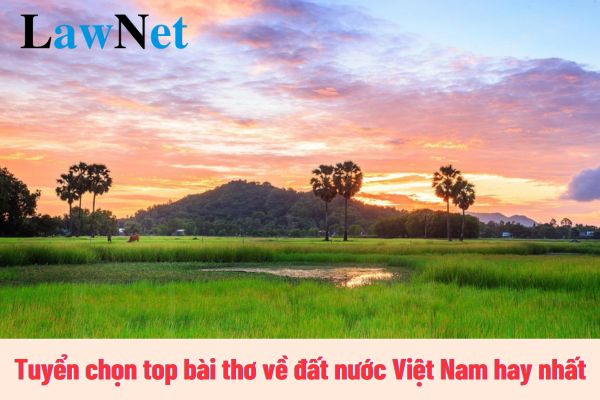What are the best poems about Vietnam? What are the 05 standards of upper secondary school teachers?
What are the best poems about Vietnam?
Poems about Vietnam are literary works that use words, images, and sounds to express love, pride, nostalgia, or reflections about one's homeland and country. These poems often praise the natural beauty, people of Vietnam, evoke heroic history, or express aspirations and dreams of a bright future for the country.
Poems about Vietnam are essential for upper secondary school teachers to know, requiring comprehensive knowledge to convey them effectively to their students.
Teachers may refer to the following best poems about Vietnam:
|
What are the best poems about Vietnam? Classic poems about the country: |
*Note: Information is for reference only!

What are the best poems about Vietnam? What are the 05 standards of upper secondary school teachers? (Image from the Internet)
What are the 05 standards of upper secondary school teachers in Vietnam?
Under Article 67 of the Law on Education 2019, the 05 standards of upper secondary school teachers in Vietnam are specified as follows:
1. Have good morals, ideological and mental qualifications;
2. Meet professional standards of teaching position;
3. Have skills of updating and upgrading professional capacity and knowledge; and
4. Maintain good health as required by the profession.
What are the prohibited acts for upper secondary school teachers in Vietnam?
According to Article 31 of the lower secondary school, upper secondary school and multi-level school charter promulgated with Circular 32/2020/TT-BGDDT, the prohibited acts for upper secondary school teachers in Vietnam include:
- Strip students and coworkers of their honor or dignity; infringe upon bodily integrity of students and coworkers.
- Act dishonestly during an examination or admission process; act dishonestly during assessment of student performance; skip teaching or cut teaching or educational contents without permission.
- Distort teaching or educational contents; teach wrong knowledge or contents that are against the education guidelines or viewpoints of the Communist Party of Vietnam and the State.
- Force students to take extra classes for money; take advantage of educational sponsorship or assistance to forcibly extract cash or kind contributions.
- Smoke or consume alcohol or other stimulants while participating in teaching or educational activities.
- Hinder support given to teaching or educational activities and other activities.

